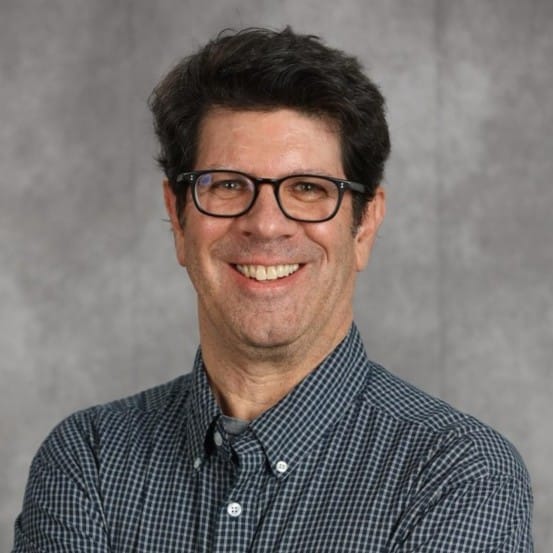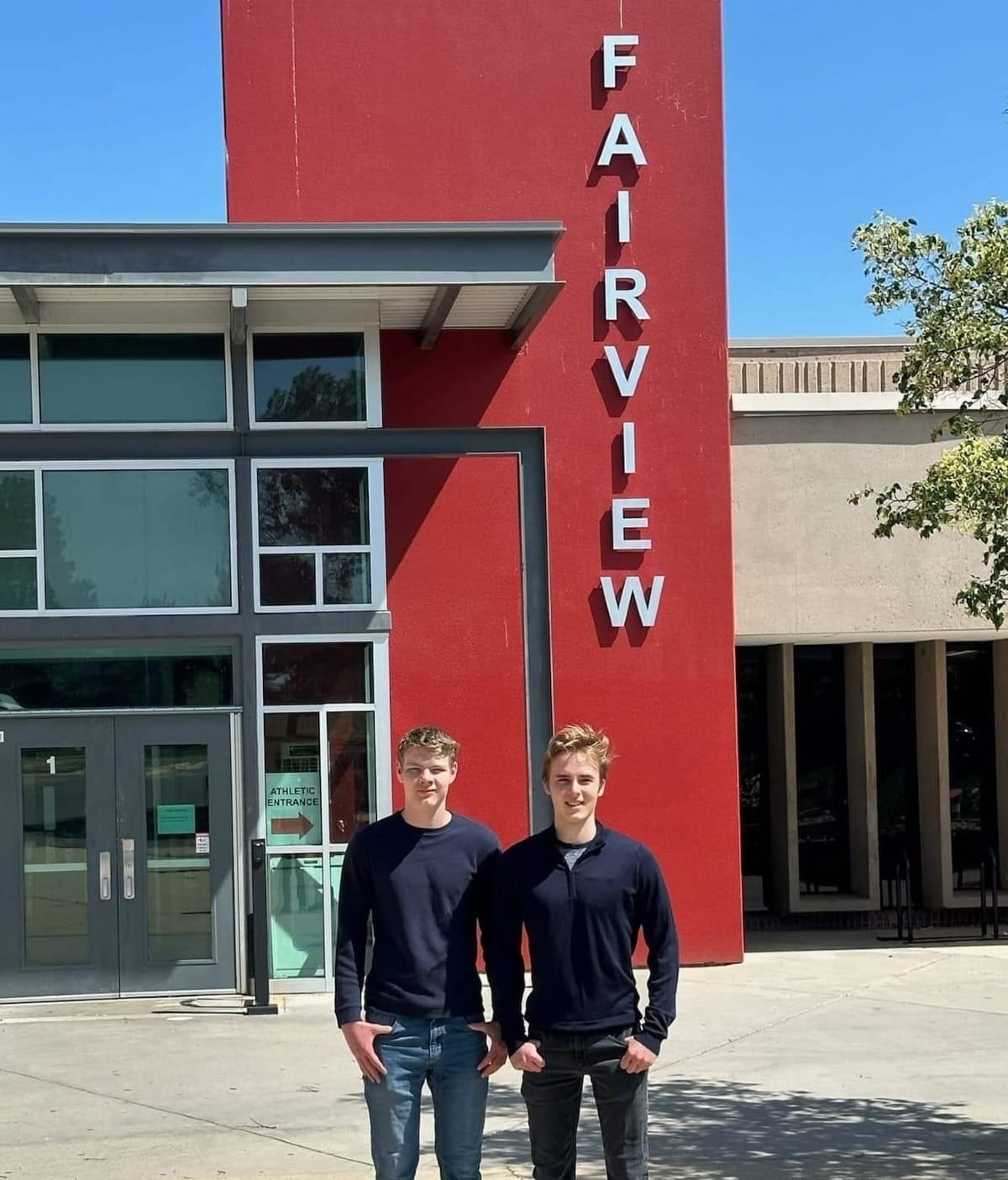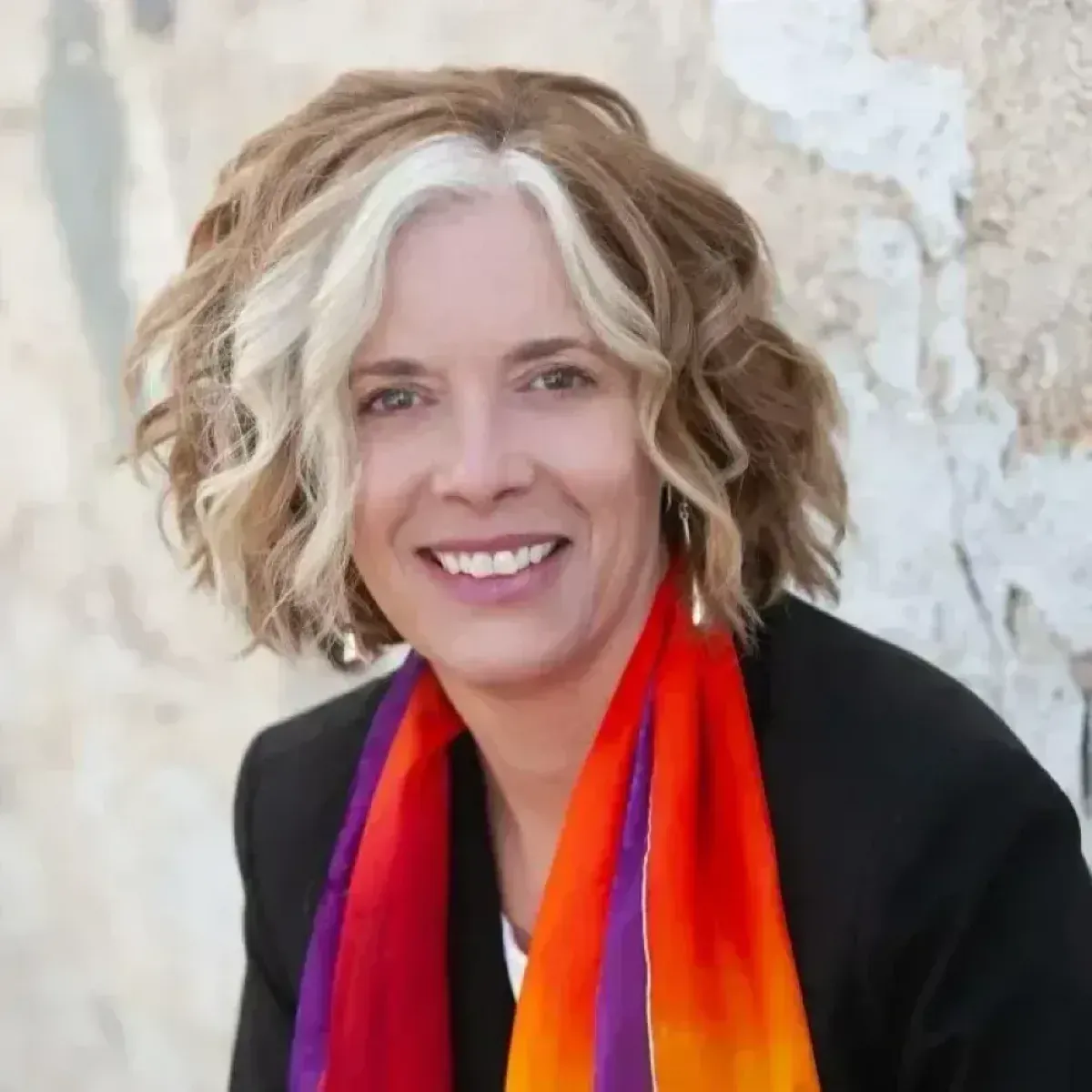There must be something in the water in Boulder. How could there not be, when the city of just 105,000 keeps pumping out successful entrepreneurs? In fact, as long as a decade ago, Inc. Magazine named Boulder “America’s Startup Capital,” calling it the most entrepreneurial city in the country based on the number of high-tech startups per capita.
And just this past week, Colorado’s Elevate Quantum Tech Hub was awarded $41 million by the U.S. Department of Commerce for being one of the nation’s hubs of quantum computing, which is due in no small part to the significant role Boulder has played in quantum – and its predecessors – since the 1950s.
Given all that, it’s not a big surprise that the very first Colorado AI Startup to Watch is a company founded in Boulder. APIGen was founded less than a year ago by Christopher Fitzgerald and Nicholas Van Landschoot. What is striking is that they just graduated from high school in May.
But even more impressive is that APIGen recently received a $500,000 pre-seed investment from the Denver-based venture capital firm Varana Capital.
Which begs the question for everyone else out there: How did you spend your summer after high school?
Early Lessons
Fitzgerald and Van Landschoot’s early success raises another question: How did they make all this happen? Well, the two are quick to let you know that they aren’t newbies. Before starting APIGen, they founded Synthine, a chatbot company offering a “Chat With Your Data” solution that was in the vein of Data as a Service or Analytics as a Service. Their experience with Synthine taught them two big lessons: First, that chatbot companies are a dime a dozen. And second, that coding the complex APIs that were necessary took an incredible amount of time and energy.
And that reality – which they were mulling over while on a school bus headed back to Boulder’s Fairview High School after a 10-hour day at a debate tournament – led to their inspiration for APIGen: “What if we were to pivot to focusing on this issue that drives everyone crazy? What if we could make APIs easier for everyone?”
And thus, APIGen was born.
Of course, the true genesis of both Synthine and APIGen started many years ago. Van Landschoot began programming when he was eight, meaning that today at 18 he already has 10 years of experience coding. That 10,000-hours-to-mastery concept, popularized by Malcolm Gladwell some years back? Van Landschoot is already there. In fact, at the age of 14, he was tutoring college and even grad students in computer science. And, for the record, these weren’t just any college students. Van Landschoot happened to mention that he tutored Harvard and Stanford students, among others.
And then there’s the fact that Van Landschoot created a neural network “from scratch” for a 10th-grade biology project. Obviously, he was anything but your average high school kid.
But getting through high school was no walk in the park for the two founders. They talked about the incredible number of very late nights that they put into Synthine and APIGen and how they often walked into Fairview High in the morning feeling like zombies. Fitzgerald discussed the pressure to continue to keep up his grades for college. And even well into this past spring, there was the time-intensive and somewhat grueling debate team.
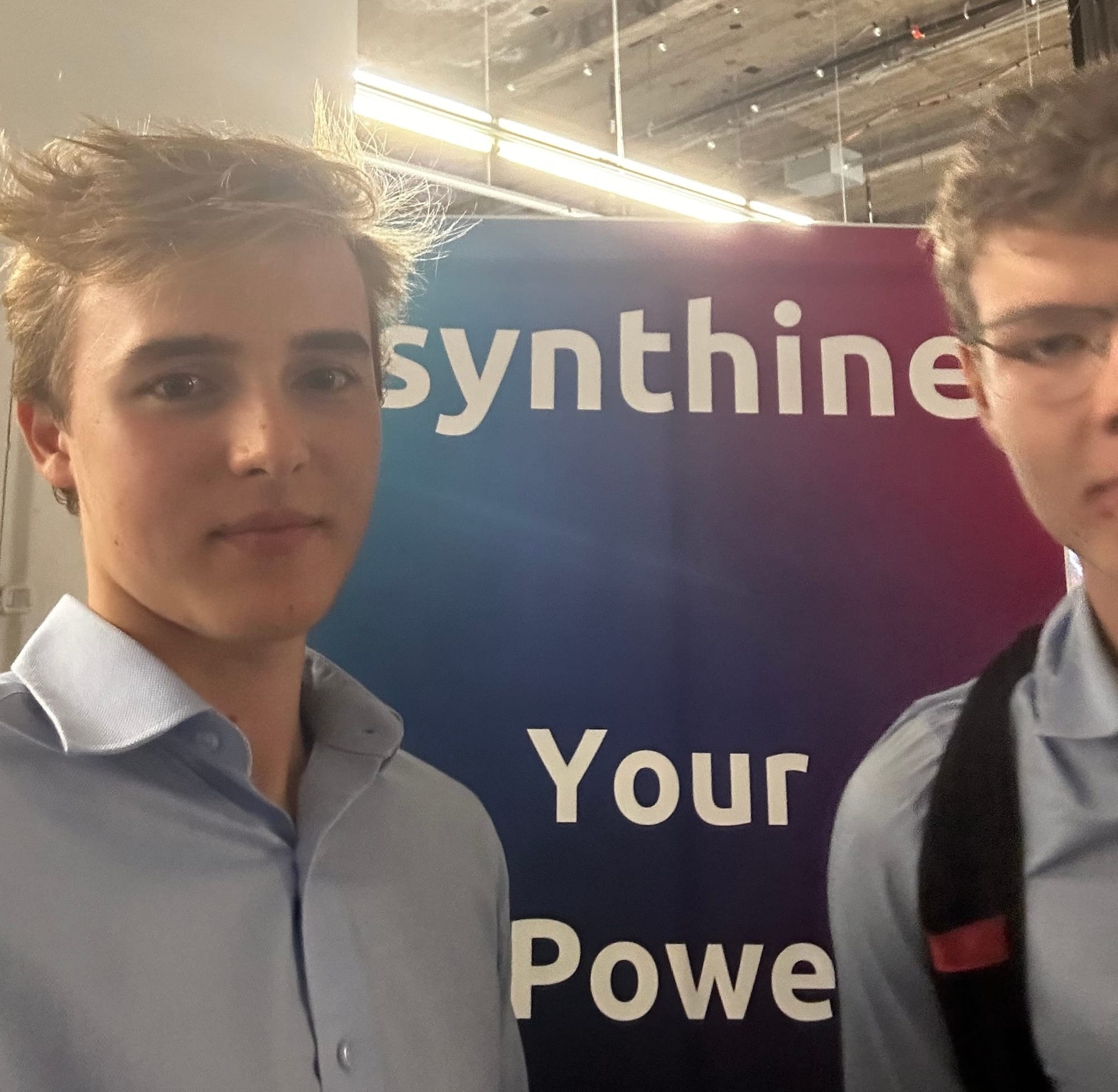
The RMAIIG Experience
Through it all, they persevered. Fitzgerald and Van Landschoot credit Boulder’s Rocky Mountain AI Interest Group for providing them with monthly inspiration and education. They spoke about how energizing it was to attend large meetings where the discussion centered on “nothing but AI for two hours.”
This spring, the two founders participated in RMAIIG’s Demo Day, where they were one of just six teams out of 20 selected by attendees to present on stage. Discussing the positive reaction of audience members to their demo, they indicated how encouraging it was to get so much enthusiastic feedback from RMAIIG members, and how quite a few people reached out to them afterward with offers of help.
When Dan Murray, founder of RMAIIG, was asked what he thought when he saw APIGen’s demo, he remarked, “Their demo was phenomenally good. Christopher and Nicholas are polished presenters who are way ahead of their age group. I’ve been super impressed with both of them, and it’s been fascinating to see them evolve, pivot their business model, and actively engage with the local AI community.”
In fact, the story of APIGen is so singular that TechCrunch ran a really nice piece two weeks ago about the company and its founders. (It’s a great read, and incidentally, TechCrunch took down its firewall earlier this year, so the article is free for all readers.)
In the opinion of Colorado AI News, one of the most fascinating details of the whole story is what led to Fitzgerald and Van Landschoot becoming fast friends and eventual startup co-founders. Yes, they shared an interest in coding, but even more significant to their friendship in 10th and 11th grades was their avid participation on the debate team.
And here’s where experience on a debate team can be key to an entrepreneur’s success: In a recent interview with Colorado AI News, Fitzgerald said, “We love to argue – and we love to learn from that.” Of course, many students (and others) might say that they love to argue, but how many follow that up by saying that they love to learn from their arguments?
It’s that maturity and open mindset that undoubtedly captured the attention of Philip Broenniman at Varana Capital. And again, the founders’ experience on the debate team meant they were used to being calm, cool, and collected under fire.
Certainly, their experience making persuasive arguments in highly stressful performances helped them in their two-hour meeting with Broenniman and Ankhur Ahuja, Varana’s COO. In fact, Broenniman indicated that it was the best presentation he had seen in the last five years.
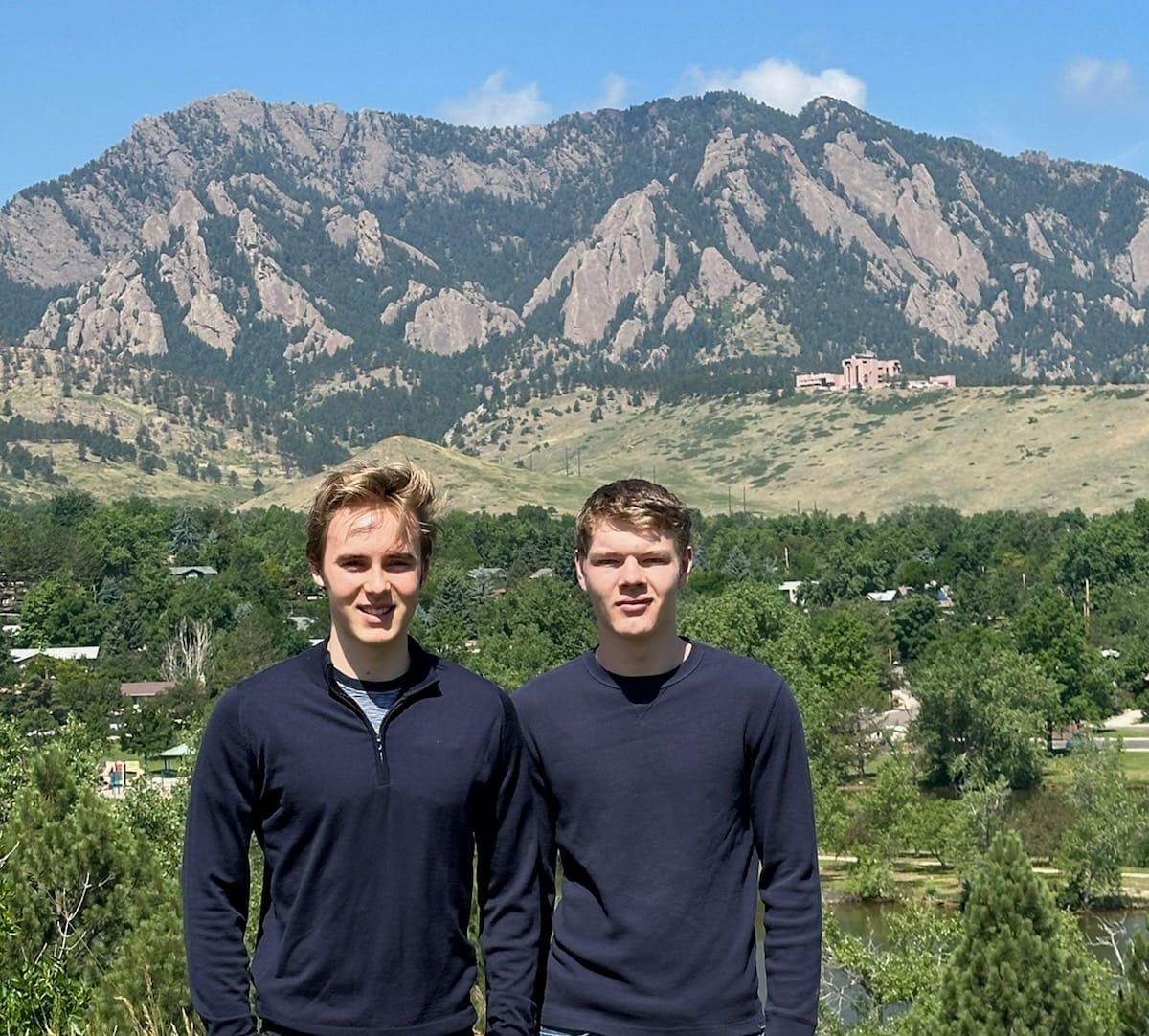
Making APIs as Easy as ABC
In a nutshell, APIGen is developing an AI-driven tool that greatly simplifies the process of creating a custom API (application programming interface). APIs for simple tasks can be fairly straightforward to code, but more complex ones can be strikingly difficult and time-consuming, and this is where APIGen sees the most opportunity.
Fitzgerald talked about discovering the surprising fact that over 50% of the people working with APIs are not actually developers by training, and how that struck him as a wide-open opportunity for APIGen. What if they could make the process of generating custom, complex APIs as easy as writing a prompt?
Of course, they’re not the only entrepreneurs – or huge corporations – to think that using AI to make the API process much easier for developers could be a really good business idea. Google and Salesforce have both acquired startups in this space, so it’s not going to be an easy ride for APIGen. That said, its founders have a healthy confidence that they’ll be successful.
As Fitzgerald said, “We're using generative AI where these other companies are not. They're not using generative AI in the actual creation process. What does that mean? It means that they’re not an end-to-end solution and we are. And that means our customers can come onto our platform and have a finished API at the end of it. I don't believe there's another platform where you can do that.”
At least not yet. With that in mind, Fitzgerald and Van Landschoot know that time is of the essence. They’ve just recently started rolling out their beta and are eagerly awaiting initial feedback.
Looking ahead, Fitzgerald, one of Fairview High School’s valedictorians, is starting at Duke this fall. Van Landschoot is putting his college plans on hold for at least a year, but he’s also heading out to North Carolina so they can continue to work together on APIGen.
And yet, despite the well-known tech cred of North Carolina’s Research Triangle, the two founders both recognize that Boulder is their kind of town, and they were very clear that they plan on remaining a Colorado company.
As Fitzgerald noted, Frontier Airlines offers a pretty sweet deal with its $599 annual All-You-Can-Fly pass, which will allow the two to make it back to Boulder as often as necessary.
Which is a really good thing. Given the entrepreneurial superpowers apparently found in Boulder’s water supply, Fitzgerald and Van Landschoot won’t want to stay away for too long.

